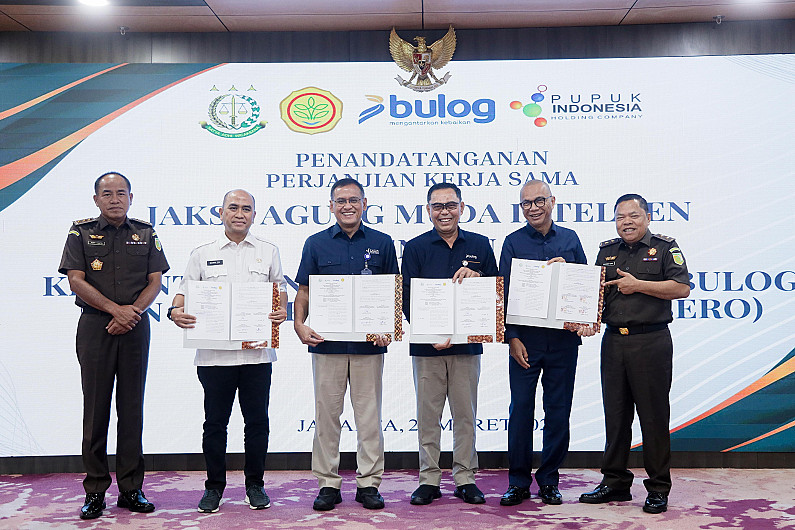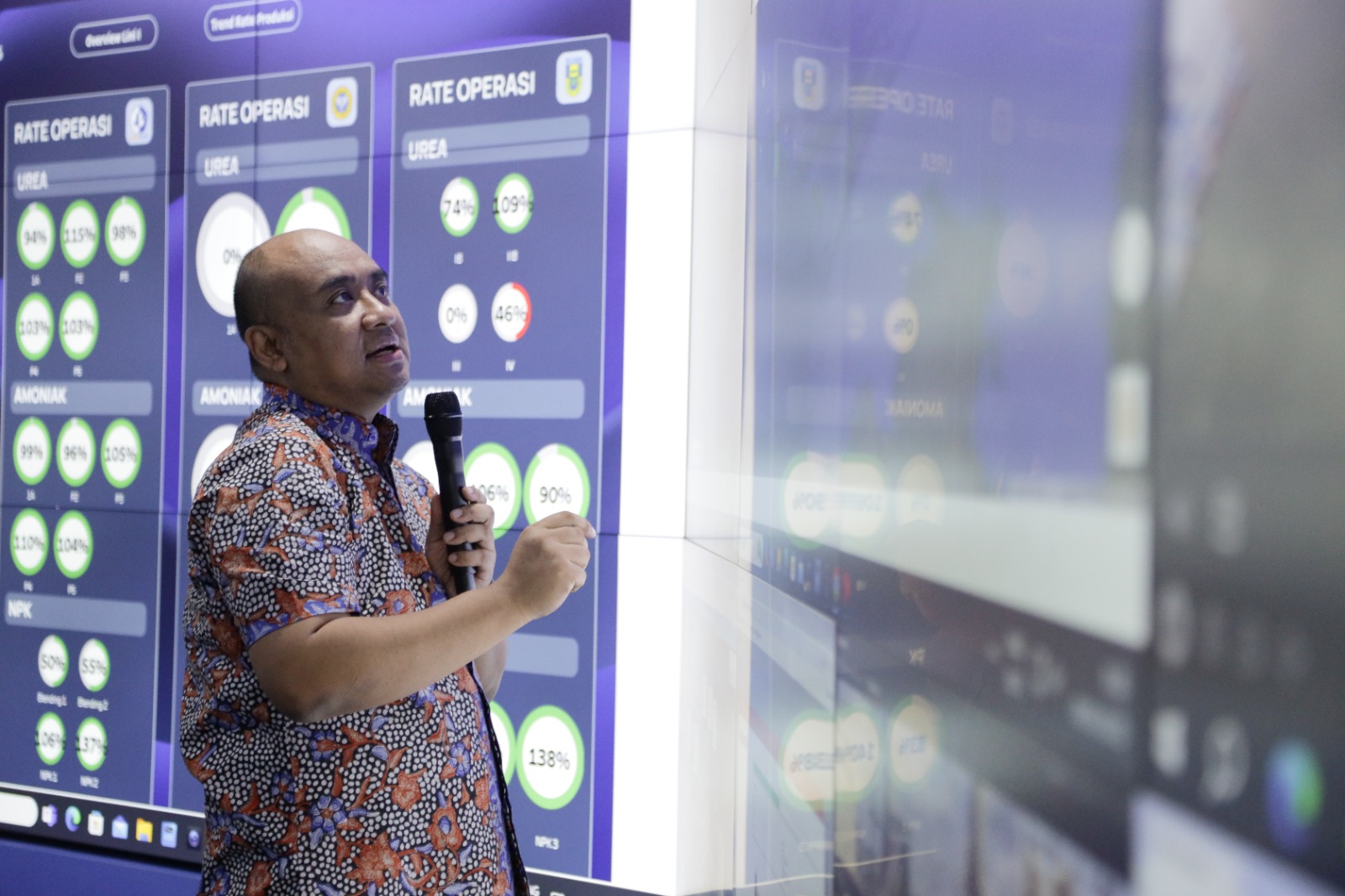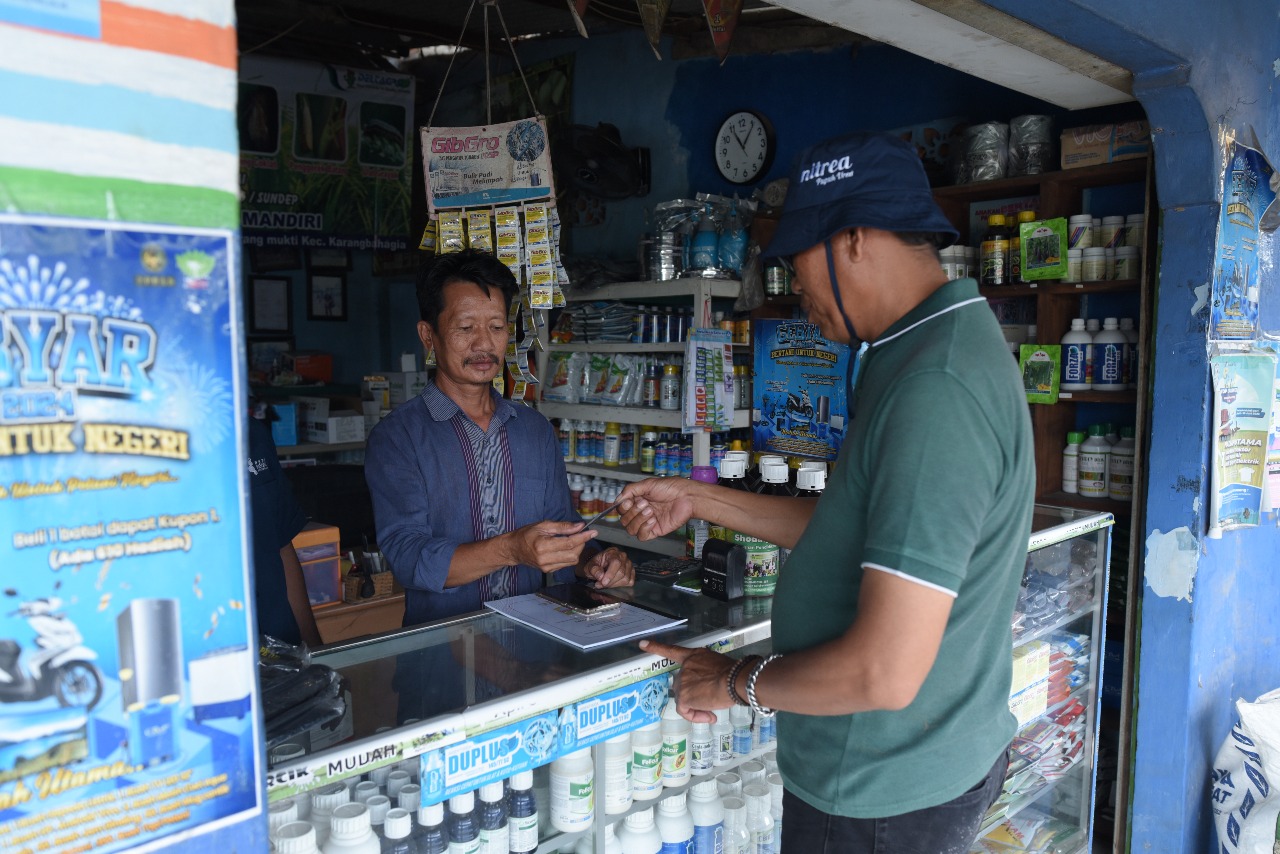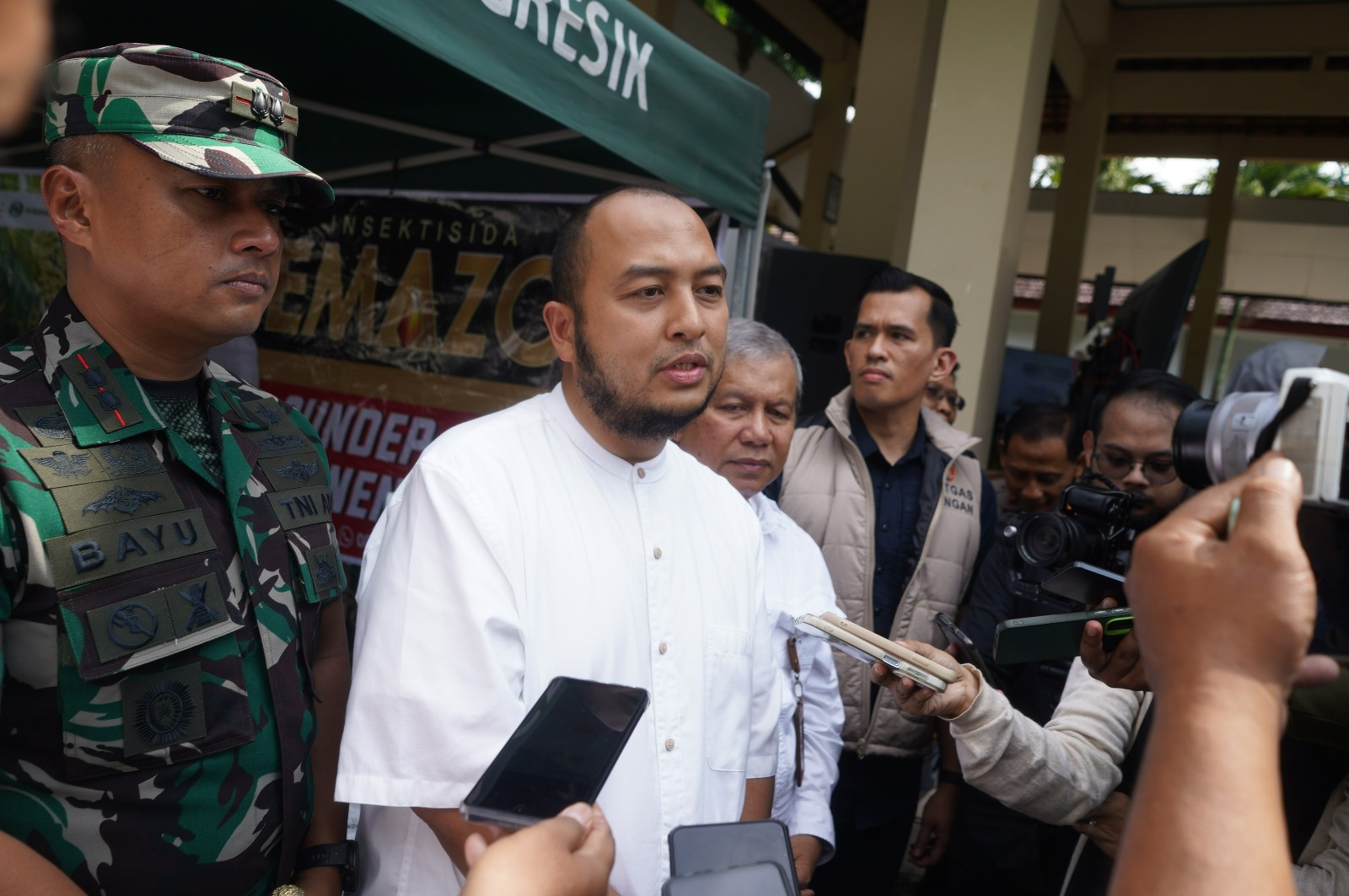Kerjasama dengan Kejaksaan, Pupuk Indonesia Dukung Pengelolaan Lahan Rampasan Jadi Lahan Budidaya Padi

Jakarta, 25 Maret 2025 – PT Pupuk Indonesia (Persero) siap mendukung pengelolaan lahan rampasan yang dikelola oleh Kejaksaan Agung (Kejagung) Republik Indonesia dalam rangka mendukung program swasembada pangan nasional. Salah satunya akan memanfaatkan lahan rampasan sebagai lahan budidaya pertanian padi. Kejaksaan Agung melalui Jaksa Agung Muda Bidang Intelijen (JAM INTEL) bersama Sekretariat Jenderal Kementerian Pertanian, Pupuk Indonesia, dan Perum BULOG menandatangani Perjanjian Kerja Sama (PKS) strategis di Gedung Utama Kejaksaan Agung, Jakarta, Selasa (25/3/2025).
Jaksa Agung Muda Intelijen (JAM Intel) Kejaksaan Agung, Reda Manthovani mengatakan bahwa, kerja sama strategis ini merupakan implementasi dari program prioritas Pemerintah yang tertuang dalam Asta Cita, dimana salah satu poinnya adalah mendorong kemandirian bangsa melalui swasembada pangan.
"Kita harus mendukung, karena ini merupakan cita-cita mulia dari Bapak Presiden agar kita swasembada pangan. Salah satu kebijakan pemerintah yang mendukung hal ini adalah penghentian impor beras mulai tahun 2025 serta target serapan 70 persen dari total 3 juta ton gabah yang dicanangkan oleh Badan Pangan Nasional, " demikian ungkap Reda Manthovani.
Upaya untuk mendukung tercapainya target tersebut, tambahnya, Kejagung menginisiasi program Jaksa Mandiri Pangan untuk mendukung swasembada pangan dengan memanfaatkan aset lahan barang rampasan negara tindak pidana korupsi maupun tindak pidana lainnya. Kerja sama ini menitikberatkan pada pemanfaatan lahan barang rampasan negara yang sampai saat ini dikelola oleh Kejaksaan.
Adapin pilot project dalam kerja sama ini yaitu mengoptimalkan aset dari perkara tindak pidana korupsi (tipikor) PT Asabri (Persero) atas nama Benny Tjokrosaputro yang berlokasi di Kabupaten Bekasi. Ada sebanyak 414 bidang tanah dena total seluas 3.300.524 meter persegi atau lebih dari 330 hektar. Lahan tersebut akan dimanfaatkan untuk budidaya padi guna memenuhi kebutuhan beras nasional.
“Tidak menutup kemungkinan kedepan akan memanfaatkan aset-aset yang tersebar di seluruh Indonesia, dan berasal dari barang rampasan negara. Lahan tersebut akan ditanami padi untuk memenuhi kebutuhan beras nasional,” ujarnya.
Pada kesempatan yang sama, Direktur Utama Pupuk Indonesia, Rahmad Pribadi menyampaikan apresiasi atas program yang diinisiasi oleh Kejaksaan ini. Ia mengkalkulasikan, apabila di Bekasi ada lahan lebih dari 330 hektar, dan setidaknya setiap hektarnya memproduksi 5 ton padi, maka setiap kali panen bisa memproduksi 1.650 ton satu kali musim.
"Kami menyambut baik program ini, apalagi fokus kami ada di on farm. Mulai dari proses penanaman, menyediakan pupuk dan pestisida. Hasilnya dibeli oleh Bulog. Kami siap mendukung penuh dan berkomitmen untuk berpartisipasi aktif dalam mendukung supaya Pemerintah mencapai ketahanan pangan nasional," kata Rahmad.
Dalam kerja sama ini juga didukung yang akan mengkoordinasikan penyediaan sarana dan prasarana budidaya pertanian yang diperlukan dalam pemanfaatan lahan. Adapun Perum Bulog bertindak sebagai offtaker pertanian, yaitu melakukan pembelian hasil panen pemanfaatan lahan.
Selain itu, tambahnya, sinergitas ini juga dijalin dalam rangka pengembangan kompetensi Sumber Daya Manusia (SDM) di bidang swasembada pangan melalui kegiatan penyuluhan, seminar, dan kelompok diskusi. Sasaran dari program ini yaitu kelompok tani (poktan), kelompok masyarakat, maupun pihak lainnya yang mendukung swasembada pangan nasional.
Dalam perjanjian ini, masing-masing pihak memiliki peran sebagai berikut:
• Kejaksaan Agung: Mengkoordinasikan penyediaan lahan tanam.
• Kementerian Pertanian: Mengkoordinasikan penyediaan bibit, sarana prasarana pertanian, serta pembinaan kelompok tani.
• PT Pupuk Indonesia (Persero): Mengkoordinasikan penyediaan pupuk.
• Perum BULOG: Mengkoordinasikan pembelian hasil panen.
Selain itu, kerja sama ini mencakup pertukaran data dan informasi guna deteksi dini terhadap potensi permasalahan hukum, serta kegiatan sosialisasi, pengembangan sumber daya manusia (SDM), dan berbagai hal teknis lainnya yang mendukung kelancaran program.
Perjanjian ini akan berlangsung dalam jangka waktu tiga tahun. Diharapkan mampu memberikan kontribusi optimal bagi swasembada pangan nasional yang targetnya dipercepat oleh Pemerintah di tahun 2027.







